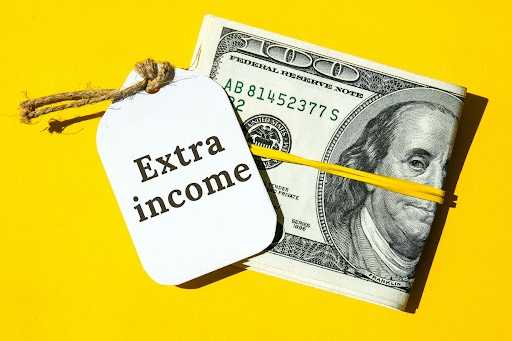- Office Party
- Posts
- 🎉 Workin hard or hardly workin?
🎉 Workin hard or hardly workin?


Read time: 2.5 minutes
Good Afternoon Party People! 🎉
We’re the Friday of newsletters. The one you actually look forward to.
PARTY PLAN 🎉
🤨 Workin hard or hardly workin?
👟 Nike blames remote work for problems
💰 Paycheck to paycheck…
And, of course, MEMES!
MEME OF THE DAY

WORK
Workin Hard or Hardly Workin?

A new survey from the popular career site Resume Builder revealed that 41% of Gen Z workers have made career decisions based on advice from TikTok.
Send the asteroid already…
10 percent of Gen Z workers admitted to quitting their jobs because of advice they got on TikTok.
Another 13 percent said they’ve decided to put in less effort at their jobs because of the “act your wage” trend where employees claim to work the equivalent of their wage and nothing more.
“TikTok provides quick and easy-to-follow advice that can be implemented immediately in many cases. While I think you can get great advice on TikTok, you also need to vet who you’re getting the advice from. Check LinkedIn and do a general web search for people you’re taking advice from before you act. There are a lot of people giving BAD advice on TikTok.”
80% of Zoomers also use TikTok to network, and 15% of the survey respondents received at least one job offer through the Chinese video app.
Is TikTok the new LinkedIn?!
35% decided to pursue a side hustle or even turn a current one into their full-time gig because of TikTok inspiration.
Another 22% decided to finally advocate for themselves in the workplace by asking for a raise or increased benefits, more PTO, more flexibility to work remotely, and more.
💡 Career experts at Resume Builder say career advice from TikTok can be good, but it’s important to know who you’re getting the advice from. Before taking anything into serious consideration, it’s worth at least a search on LinkedIn to see if the person on the screen has any real career expertise.
JOB SEEKERS’ CORNER 🎉
REMOTE WORK
Nike CEO Blames Remote Work for Failures
Last week, Nike CEO John Donahoe blamed 2.5 years of remote work for the company’s innovation slowdown and lack of new products.
Nike has lost a fair amount of market share in the last few years to new shoe brands like Hoka and On Clouds.
📉 Stock price, down. 📈 Layoffs, up.
He also pointed out that footwear factories in Vietnam were forced to shut down during the pandemic
(Nice try, Donahoe, but that reality was the same for all the other shoe companies too!)
Nike has been in some rough water over the last few months. In December, the company announced a broad restructuring plan to reduce costs by about $2 billion over three years.
✂️ Two months later, they cut the entire workforce by 2%, roughly 1,500 jobs.
“In hindsight, it turns out, it’s really hard to do bold, disruptive innovation, to develop a boldly disruptive shoe on Zoom. Our teams came back together 18 months ago in person, and we recognize this. So we realigned our company, and over the last year we have been ruthlessly focused on rebuilding our disruptive innovation pipeline along with our iterative innovation pipeline”.
Donahoe brings up some good points. Designing a shoe over Zoom does sound pretty difficult.
But Nike’s competitors have had the same conditions. It may be less of a remote work issue and more of a cultural issue.
Everyone needs a scapegoat…
While Donahoe’s comments about innovation struggles over Zoom may be true, companies aren’t going to be able to pin all their problems on remote work for much longer!
PAY
Paycheck to Paycheck…
A new survey from FinFit and HR Dive found that three in four employees in the US are living paycheck to paycheck.
“Living paycheck to paycheck is, by definition, going to result in financial stress. That’s especially true when workers are faced with unexpected financial shocks.”
From the survey, roughly 60% of respondents said they stress about finances at their jobs at least once a week. Nearly half said they lose sleep due to financial stress.
Another 38% said they’ve taken days off of work to deal with personal finance issues.
Respondents expressed strong interest in employee benefits designed to help them save money and pay down debt. If employers were to offer desired benefits such as access to emergency savings accounts and hardship funds, workers would be:
80% more likely to stay at their company.
78% more likely to recommend their company as an employer.
65% less likely to seek new roles outside the company.
65% more engaged in work
Hiring managers and bosses, take notes!
💡If this is you, do your best to save an emergency fund. Try to pick up a second source of income.
This will give you more flexibility in your career and reduce some stress.
Need some ideas? Check out the top 25 Side Hustle Ideas for 2024.
GET IN FRONT OF 12,500+ HR LEADERS, FOUNDERS, AND RECRUITERS
Advertise with The Office Party and promote your company to decision-makers at top companies. Get in touch.
